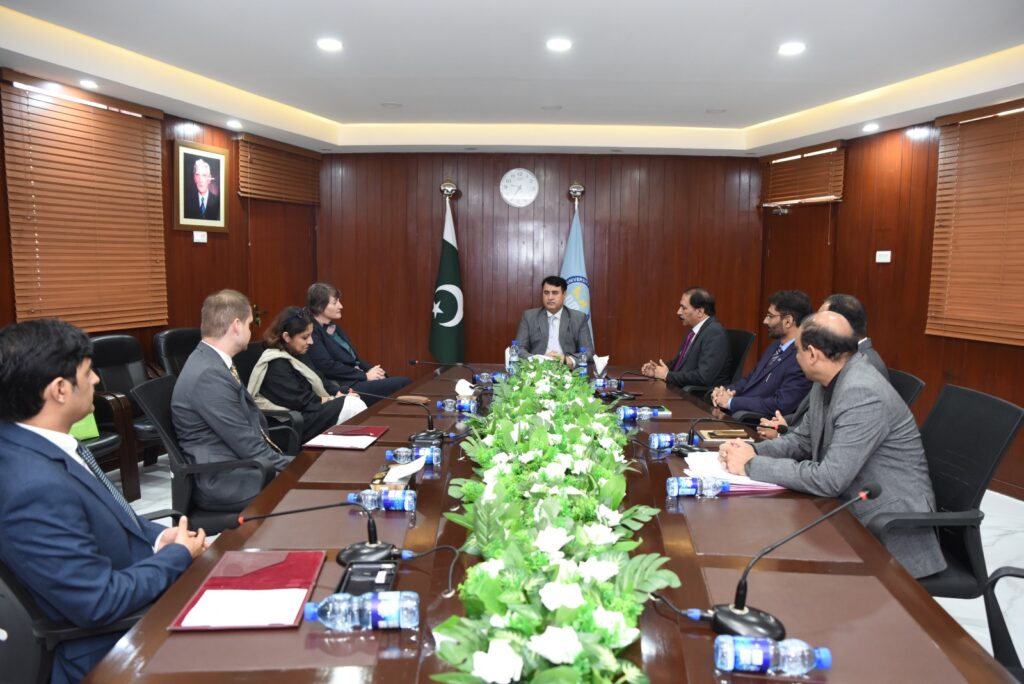Islamabad-UNS: Khyber Pakhtunkhwa Police, the Government of Japan and the United Nations Development Programme (UNDP) Pakistan jointly inaugurated newly constructed model police stations in the merged districts of Bajaur, Kurram, Mohmand, North Waziristan, and Orakzai. This marked the successful completion of a project funded by the Government of Japan
and implemented by UNDP in partnership with Khyber Pakhtunkhwa Police, for improved policing
services in the merged districts.
Established by UNDP Pakistan’s flagship Rule of Law Programme, these Model Police Stations
provide a range of new facilities to better serve the people of merged districts, including well-
equipped and furnished working spaces and reception areas to accommodate women and men
police officers and visitors, a gender-responsive desk to address cases of gender-based violence, a
hall to convene joint community and police meetings, residential facilities for 50 police officers with
separate living quarters for 10 women police officers, security posts, and separate holding rooms for
men and women.
Mr Awal Khan, Additional Inspector General of Khyber Pakhtunkhwa Police, thanked UNDP Pakistan
and the Government of Japan for their support in improving police infrastructure facilities to serve
the people of the merged districts, “The Government of Japan and UNDP provided invaluable
support in advancing the Rule of Law Roadmap, which strengthens justice and democracy in our
region. The initiatives, including Gender Desks and Model Police Stations, play a crucial role in
enhancing public safety and empowering marginalized communities."
The project also developed a pool of 22 master trainers on basic and specialised police functions,
including gender-responsive and community-based policing, and supported Khyber Pakhtunkhwa
Police to train 305 police officers including 31 women police officers from the merged districts.
Additionally, the project developed seven district police plans for Khyber, Bajaur, Kurram, Mohmand,
Orakzai, and North and South Waziristan, highlighting the unique security needs of each district and
proposing a plan to address those needs.
Addressing the ceremony, the Ambassador of Japan to Pakistan, H.E. WADA Mitsuhiro said, “The
project has supported them to harness these skills in enhancing police services by implementing
the KP Rule of Law Roadmap and providing robust police training while taking a gender-sensitive
participatory approach. We believe that such a holistic approach was critical to bringing long-term
peace and stability to the most vulnerable communities in Pakistan. Peace and stability are indeed
basic human rights and they are central to achieving sustainable development in Pakistan.”
While thanking Khyber Pakhtunkhwa Police and the Government of Japan for their strong
partnership with UNDP in advancing security and justice in Pakistan, Dr. Samuel Rizk, Resident Representative UNDP Pakistan, said, “Bridging the gap in formal policing services between the
merged districts and all of Khyber Pakhtunkhwa is essential for building safer, more peaceful
communities, and ensuring equal access to these services – especially for women, girls, and other
vulnerable groups. At UNDP, we are confident that this project’s policy, capacity building, and
infrastructure pillars will achieve these goals.”
The UNDP Rule of Law Programme is implementing a range of interventions to strengthen security
and justice sector in Pakistan.



